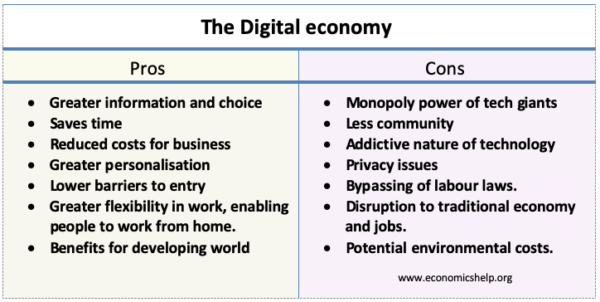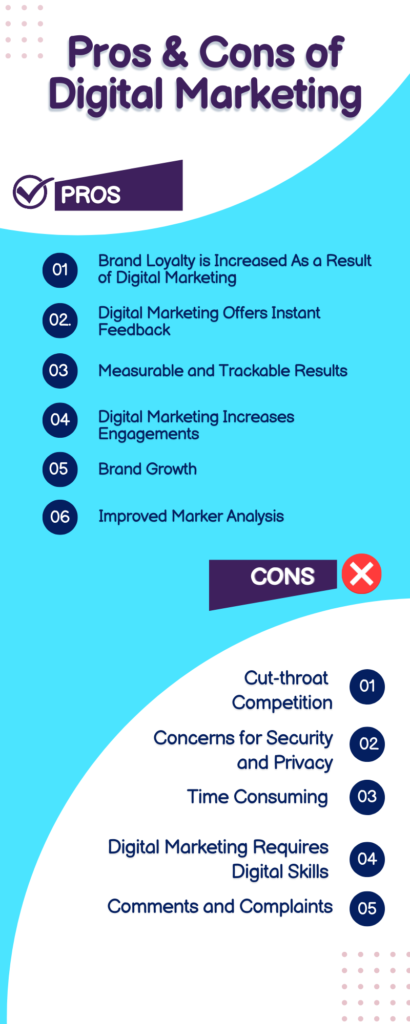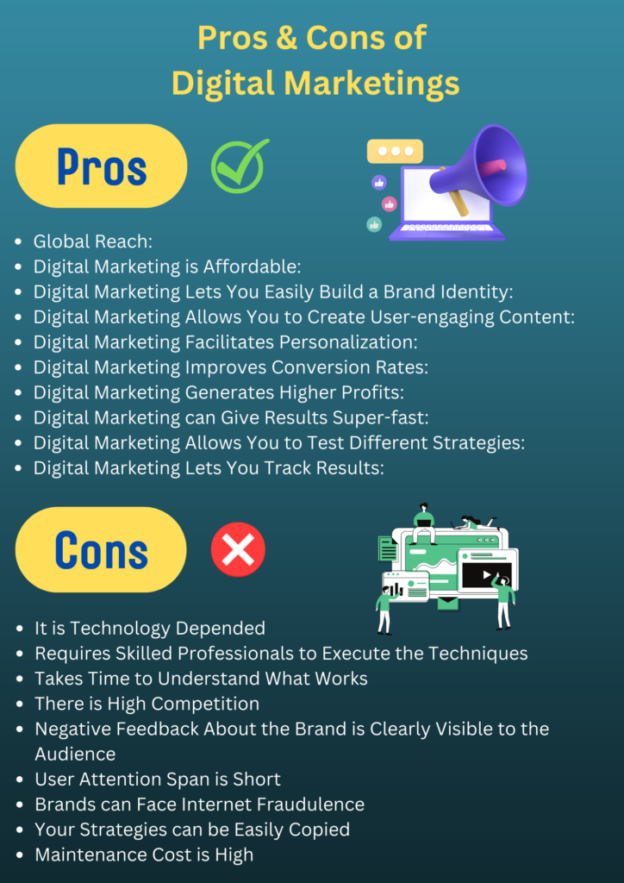So, you’ve probably heard of this thing called digitalization, right? It’s all the rage these days, and everyone seems to be jumping on the bandwagon. But have you ever stopped to consider what the pros and cons of digitalization actually are? Well, my friend, you’re in luck because in this article, we’re going to break it all down for you. From increased efficiency and convenience to concerns about privacy and job loss, we’ll examine both sides of the digitalization coin. So grab a cup of coffee, sit back, and let’s get into it.
Pros of Digitalization
Increased Efficiency and Productivity
Digitalization brings with it the promise of increased efficiency and productivity. By automating manual tasks and streamlining processes, businesses can save valuable time and resources. For example, with the use of software and digital tools, tasks that used to take hours to complete can now be done within minutes. This not only frees up employees to focus on more important and strategic tasks but also allows businesses to produce more output in less time.
Cost Savings
One of the significant advantages of digitalization is the potential for cost savings. By adopting digital technologies, businesses can eliminate the need for physical storage spaces, reduce paper-based processes, and minimize expenses associated with manual tasks. Digital documents and workflows eliminate the costs of printing, storing, and distributing physical copies, resulting in substantial savings in the long run. Additionally, digitalization enables remote work opportunities, which can reduce overhead costs for office spaces and utility bills.
Improved Communication and Collaboration
Digitalization has revolutionized the way we communicate and collaborate. Through various digital tools and platforms such as email, instant messaging, and project management software, teams can connect and collaborate seamlessly, regardless of their physical location. Real-time communication and file sharing capabilities allow for faster decision-making and increased efficiency in completing joint tasks. With the ability to connect with colleagues, clients, and partners around the world, digitalization breaks down geographical barriers and fosters collaboration on a global scale.
Access to a Global Marketplace
Another major advantage of digitalization is the access it provides to a global marketplace. Through e-commerce platforms and online marketplaces, businesses can sell their products and services to customers located anywhere in the world. This opens up new opportunities for growth and expansion, as businesses are no longer limited to their local customer base. Furthermore, digital marketing techniques such as search engine optimization (SEO) and social media advertising enable businesses to target specific audiences and reach potential customers more effectively, leading to increased sales and revenue.
Enhanced Customer Experience
Digitalization has drastically transformed the way businesses interact with their customers. Through the use of digital channels such as websites, social media, and mobile apps, businesses can provide personalized and convenient experiences to their customers. Online customer service platforms and chatbots enable businesses to provide round-the-clock support, resolving customer queries and issues promptly. By leveraging data analytics, businesses can gain insights into customer preferences and behavior, enabling them to tailor their products and services to meet customer demands effectively.
Data Analysis and Insights
With the increasing digitization of business processes, vast amounts of data are generated every day. Digitalization allows businesses to collect, store, and analyze this data to gain valuable insights and make data-driven decisions. By leveraging big data analytics and machine learning algorithms, businesses can uncover patterns and trends that were previously inaccessible. This enables them to optimize their operations, improve efficiency, and identify new opportunities for growth. Data analysis also helps businesses understand customer behavior, preferences, and market trends, allowing them to adapt their strategies accordingly to stay ahead of the competition.
Automation and Streamlined Processes
Digitalization enables automation and streamlined processes, reducing the reliance on manual work and human error. Through the use of robotic process automation (RPA), businesses can automate repetitive and rule-based tasks, freeing up employees to focus on more creative and strategic work. This not only improves accuracy and efficiency but also reduces the risk of errors and delays. By streamlining processes, businesses can eliminate bottlenecks and optimize workflows, resulting in faster turnaround times and increased productivity.
Flexibility and Remote Work Opportunities
Digitalization has revolutionized the way we work, offering greater flexibility and remote work opportunities. With the advent of digital tools and technologies, employees can work from anywhere, as long as they have access to an internet connection. This flexibility allows businesses to tap into a global talent pool, hire remote workers, and reduce geographical barriers. Remote work also offers benefits to employees, such as increased work-life balance and reduced commuting time. With the right digital infrastructure in place, businesses can achieve greater employee satisfaction and attract top talent from around the world.
Innovation and Business Growth
Digitalization is a catalyst for innovation and business growth. By embracing digital technologies, businesses can stay ahead of the competition and meet evolving customer needs. Digitalization opens up avenues for new business models, products, and services. For example, the rise of the sharing economy and digital platforms has transformed industries such as transportation and accommodation. Additionally, digitalization enables businesses to experiment with new ideas and concepts rapidly, facilitating the development of innovative solutions. By embracing digital transformation, businesses can unlock new opportunities for growth and gain a competitive edge in the market.
Environmental Sustainability
Digitalization is also beneficial for the environment. By reducing the reliance on physical infrastructure and promoting paperless processes, businesses can contribute to environmental sustainability. Digital documents and cloud storage eliminate the need for printing and physical storage spaces, reducing the consumption of paper and energy. Additionally, remote work opportunities reduce commuting, leading to a decrease in carbon emissions. Digitalization also encourages the adoption of green technologies, such as renewable energy sources and energy-efficient devices. By embracing digital practices, businesses can reduce their carbon footprint and contribute to a more sustainable future.

This image is property of www.economicshelp.org.
Cons of Digitalization
Cybersecurity Risks
One of the primary concerns associated with digitalization is the increased vulnerability to cyber threats. As businesses rely more on digital platforms and technologies, they become more susceptible to cyberattacks, data breaches, and hacking attempts. Cybercriminals are constantly finding new ways to exploit vulnerabilities in systems and gain unauthorized access to sensitive information. A successful cyberattack can have severe consequences, ranging from financial losses to reputational damage. Therefore, businesses must invest in robust cybersecurity measures to protect their digital assets and customer data.
Dependency on Technology
Digitalization brings with it a reliance on technology, which can be a double-edged sword. While technology enables businesses to streamline processes and improve efficiency, it also introduces a level of dependency. Any disruption or malfunction in the digital infrastructure can bring operations to a standstill, causing significant downtime and financial losses. Businesses must have backup systems and contingency plans in place to minimize the impact of technical failures. Additionally, as technology continues to evolve at a rapid pace, businesses must stay updated with the latest advancements to ensure their digital systems remain efficient and secure.
Job Displacement and Skills Gap
Digitalization has led to concerns about job displacement and the widening skills gap. As automation and artificial intelligence (AI) become more prevalent, certain jobs and tasks that are routine and repetitive are increasingly being replaced by machines. This can result in job losses and unemployment for individuals who are not equipped with the necessary digital skills. The skills required in the digital era are continuously evolving, and businesses must invest in upskilling and reskilling programs to support their workforce and bridge the skills gap. Additionally, governments and educational institutions play a crucial role in preparing individuals for the digital workforce by providing relevant training and education opportunities.
Digital Divide and Accessibility Challenges
While digitalization brings numerous benefits, it also exacerbates the digital divide and poses accessibility challenges. Not everyone has equal access to digital technologies and the internet, especially in rural and remote areas or among underprivileged communities. This digital divide can further widen existing social and economic inequalities. Lack of accessibility can hinder individuals’ ability to access education, job opportunities, healthcare services, and other essential resources. To address these challenges, governments and organizations should strive to bridge the digital divide by providing affordable and reliable internet access and promoting digital literacy programs.
Privacy Concerns
Digitalization collects vast amounts of personal data, raising concerns about privacy and data protection. Businesses have a responsibility to handle customer data ethically and adhere to data privacy regulations such as the General Data Protection Regulation (GDPR). However, data breaches and unauthorized data sharing can still occur, compromising individuals’ privacy and leading to identity theft or fraud. Consumers must trust that businesses will handle their data responsibly and securely. Businesses must invest in robust data protection measures, including encryption, access controls, and regular security audits, to maintain customer trust and protect their sensitive information.
Data Breaches and Identity Theft
Related to privacy concerns, data breaches and identity theft are significant risks associated with digitalization. Despite various security measures, cybercriminals can still gain access to sensitive information through sophisticated hacking techniques. A data breach can result in the exposure of personal and financial details, leading to identity theft and financial losses for individuals and businesses. Preventing data breaches requires a multi-layered approach that includes strong passwords, encryption, regular system updates, employee training on cybersecurity best practices, and effective incident response plans.
Loss of Human Touch
Digitalization brings convenience and efficiency, but it can also lead to a loss of human touch in customer interactions. As businesses automate processes and rely more on digital channels, the personal connection between businesses and customers can diminish. Automated responses and chatbots, while efficient, lack the empathy and personal touch that comes with human interaction. This can result in a less satisfying experience for customers who value personalized service. Businesses must strike a balance between automation and human interaction to ensure customers feel valued and understood.
Reliability and Technical Issues
Digitalization introduces a level of reliance on technology, which can sometimes be prone to technical issues and glitches. Downtime, system failures, and technical bugs can disrupt operations and degrade customer experience. Businesses must proactively monitor and maintain their digital systems to prevent such issues and quickly address any technical hiccups that may arise. Investing in robust IT infrastructure and having a dedicated IT support team can help businesses mitigate the risks associated with technical failures.
Social Isolation and Mental Health
As digital technologies become more pervasive, there is a concern about the impact on social interactions and mental health. The increased reliance on digital communication can lead to social isolation and a decreased sense of community. Face-to-face interactions are essential for building relationships and maintaining emotional connections. Excessive screen time and constant digital connectivity can also contribute to mental health issues such as anxiety and depression. It is important for individuals and businesses to prioritize time for offline interactions and cultivate a healthy balance between the digital world and real-life experiences.
Environmental Impact
While digitalization offers environmental benefits, it also has its own environmental impact. The increasing reliance on digital technologies leads to a higher demand for energy and electronic devices. Data centers, servers, and electronic waste contribute to carbon emissions and pollution. Additionally, the production of electronic devices requires the extraction and use of valuable resources. It is crucial for businesses to adopt sustainable practices in their digital operations, such as using energy-efficient hardware, promoting recycling and proper disposal of electronic waste, and offsetting carbon emissions through renewable energy initiatives.
In conclusion, digitalization offers numerous pros and cons for businesses and individuals alike. The increased efficiency and productivity, cost savings, and improved communication are just a few of the many advantages of embracing digital technologies. However, businesses must also be aware of the potential risks, such as cybersecurity threats, job displacement, and privacy concerns. By understanding the pros and cons of digitalization and implementing appropriate strategies, businesses can harness the power of technology while mitigating the associated risks and challenges. Ultimately, the successful adoption of digitalization requires a balance between leveraging the benefits and addressing the potential drawbacks.

This image is property of digitalscholar.in.
